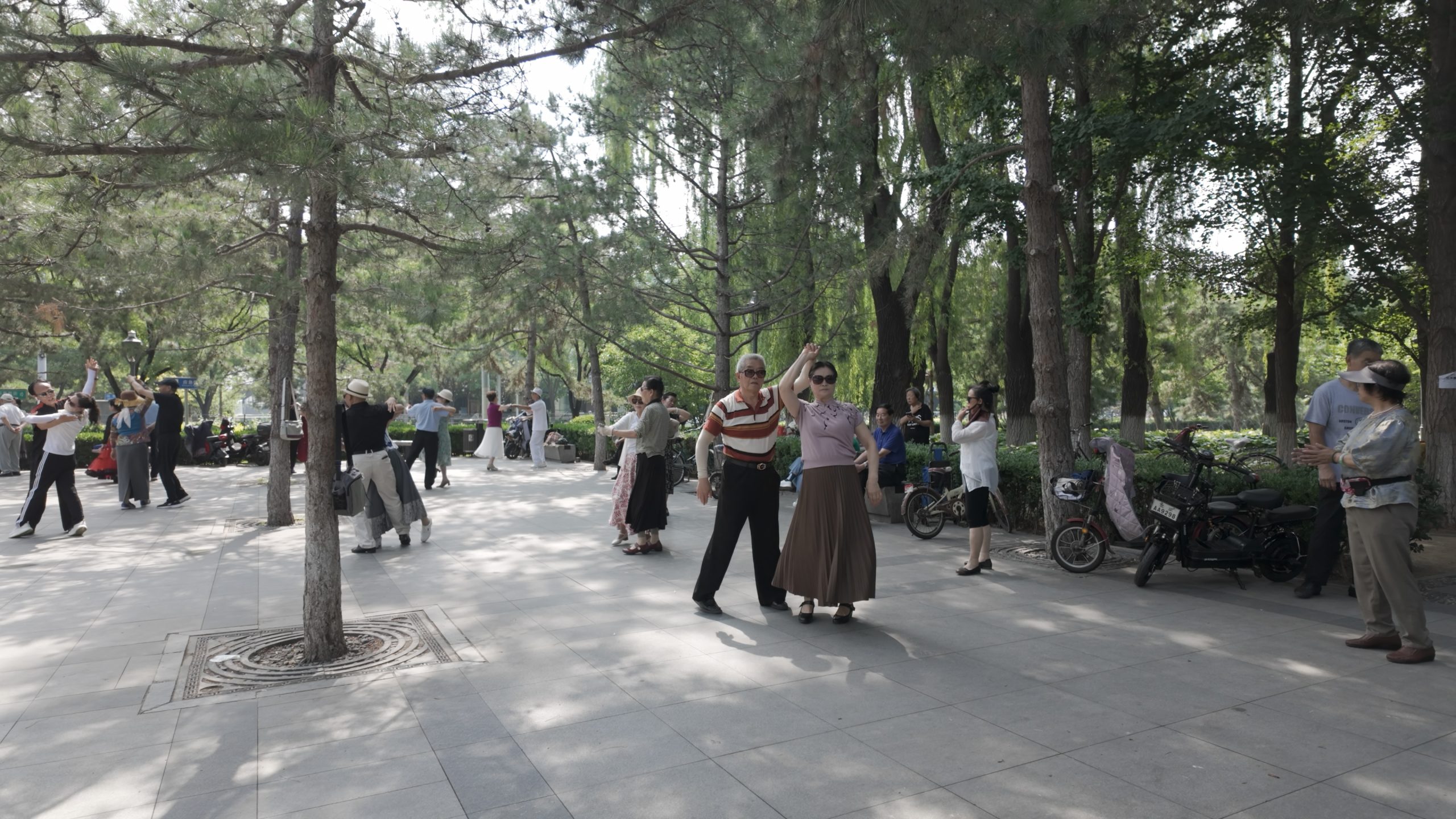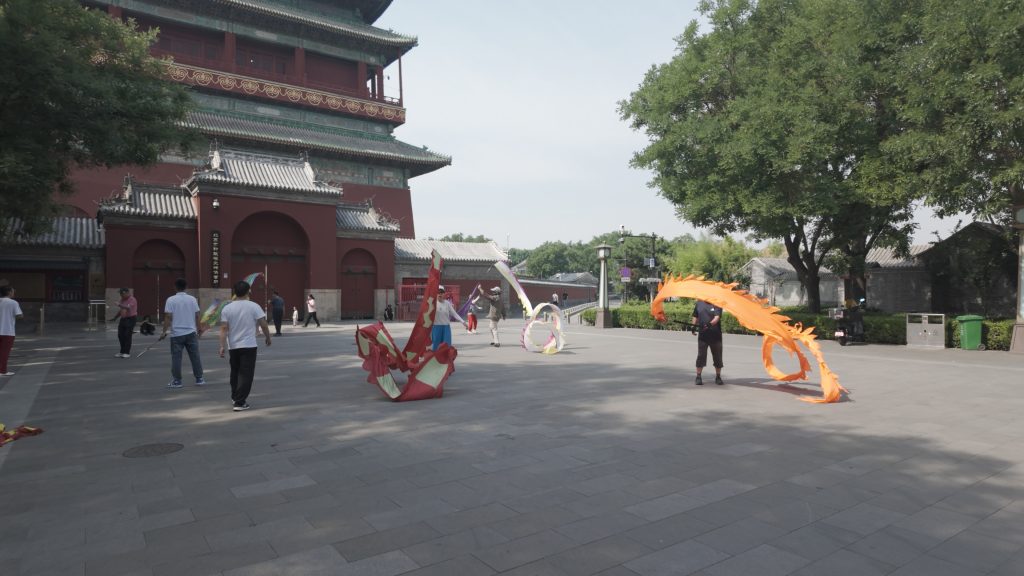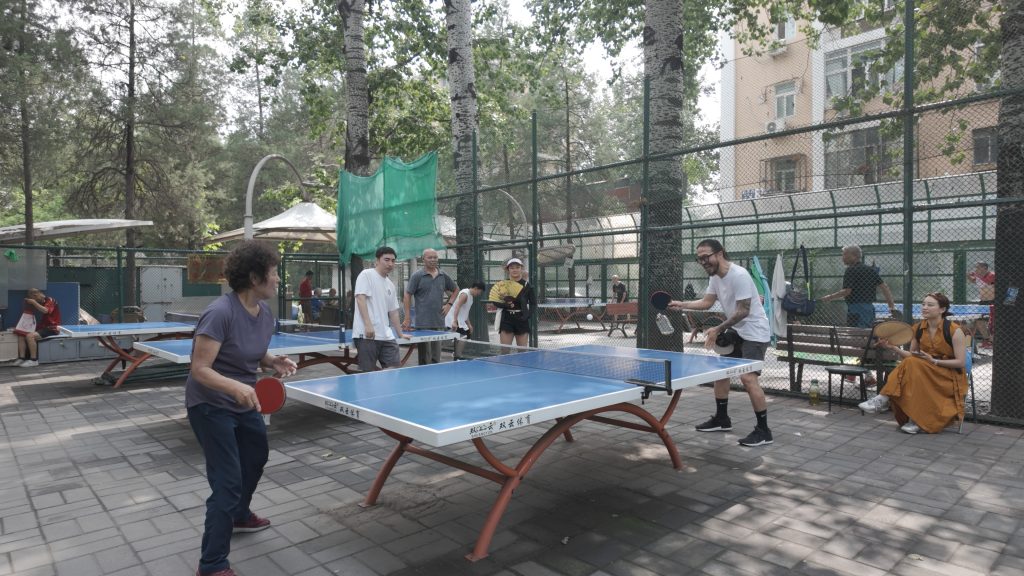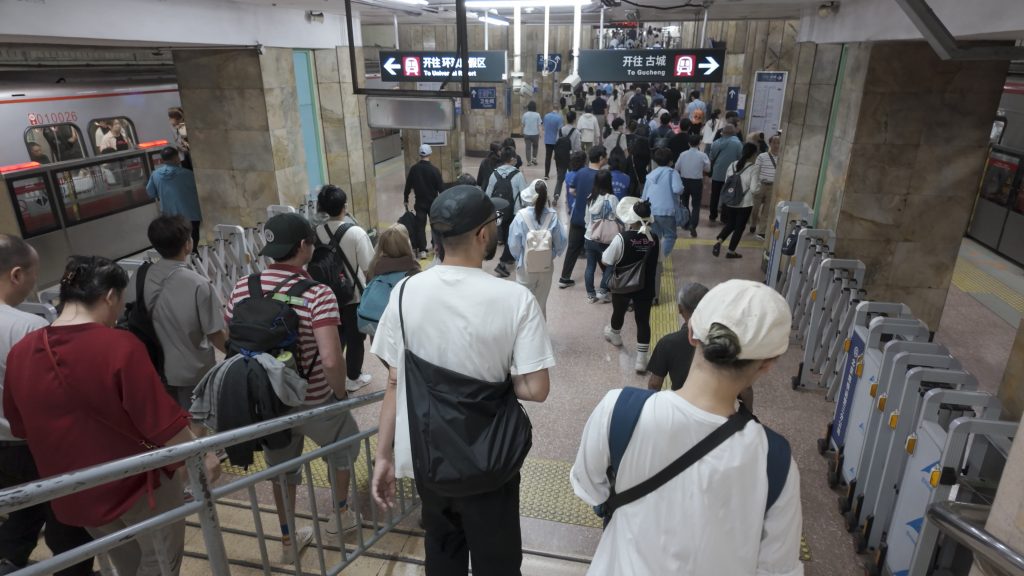
Fieldwork summary in Beijing
How to behave in a public space – rules first, or agreements first?
In Beijing, the behaviour of people in the park gave us a glimpse into the notion of publicness for people living in Beijing. If there is a spacious area in a park or square, people will gather from morning to night for various activities. For example, a group of several seniors are practicing tai chi next to several groups of people playing badminton. Eventually, flag dancers appear and begin practicing, waving long, thin flags. Before you know it, the tai chi groups are gone and another senior group with speakers start exercising to cheerful pop music.

In a park in Tokyo, it may be difficult for various groups to share a square like this. If large number of people use the square while playing music, there will surely be complaints to the local council, or if someone starts to play badminton right next to you, they may feel annoyed. Eventually, people start to leave their belongings in advance to reserve a space, and others who see it complains to the local council for occupying the park. Consequently, the park will put up signs such as “No Dancing” and “No Ball Games”.

We also discovered interesting facts about manners and rules in public spaces. In Beijing, we often see people smoking in a non-smoking area, or a group of men enjoying swimming in a large pond next to “No Swimming” sign in a park. We spoke to some of the neighbours who argued that they have the right to swim in the pond because they had always had the habit of swimming here. According to the locals, there is a common belief that behaviour in public spaces is more about consensus building among the people around than the rules, and that it is okay to do so as long as no one asks you to stop it. It is one thing to absolutely follow the established rules, but it is also a form of order that takes precedence over the rules if the people in the room agree.


There are a variety of people in big cities and tourist cities, therefore it is necessary to come to terms with something. A multicultural society sounds noble, but when there is a conflict between people with different understanding of social orders, it tends to be a one-sided story, such as “foreigners have bad manners.” Perhaps we need a new way to “behave” so that different things can coexist. By comparatively observing the behaviour of neighbouring countries in East Asia, we were able to grasp hold of the differentiation in societies as to many forms of social order and the number of lives. It is this kind of learning that makes travel meaningful.

